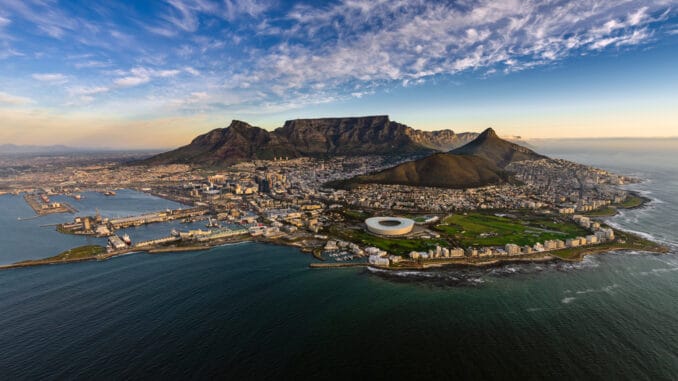
If you rolled out a map with latitude and longitude data, you would find South Africa at 29° south and 24° East. It’s actually a fairly large country at the very bottom of Africa (hence the term, “South Africa”). When it comes to time zones, South Africa is a bit controversial.
For now, there is only a single time zone in South Africa, SAST (South African Standard Time). This places Africa two hours ahead of UTC or just UTC+2. If you live in Central Standard Time in the US, 7 am would be 3 pm in South Africa.
The controversy in South Africa is a long-lasting one and is something that various politicians have been banging their heads over for decades. As with most time zone controversies, it all boils down to fuel and resources.
Will South Africa Get Two Time Zones?
Either that or South Africa will recognize Daylight Saving Time (DST), something that the country hasn’t recognized since World War II—and even then, DST was only recognized for a brief amount of time.
Since that period in South African history, the country hasn’t recognized DST, something that many countries are also in favor of and many more have already instituted.
History of Daylight Saving Time
The inception of DST is owed to the same controversy that’s been brewing in South Africa for decades—fuel and resources. Daylight Saving Time was created to help countries conserve fuel for energy needs back during World War I.
Shorter periods of daylight meant that factories and fuel-necessary activities were shut down a little earlier. How much it actually benefited anyone is hard to say. The thing is, once the war ended, DST did not.
It went on, becoming more or less a part of everyday life in most countries. One thing is for certain when it comes to DST—most people can’t stand it. If you don’t remember to roll your clocks back in the fall, you’ll show up to work an hour before you need to be there.
Worse yet, if you don’t roll your clocks forward in the spring, you’ll find yourself explaining to the boss why you’re an hour late to work. Fortunately, for South Africans, the country never took DST very seriously and only briefly flirted with the concept during WWII, as mentioned above.
Why Do Some South Africans Want to Embrace DST or Two Time Zones?
For all of the same reasons the allies embraced it during WWI, to save energy and resources. Whether or not it will ever be instituted in South Africa is a huge question mark. After all, the political powers in South Africa have discussed it for well over two decades by now.
The fact is, after all of the talks and suggestions from scientists, Africa remains a single time zone country that does not observe Daylight Saving Time. For the most part, the argument has always been about the time zone split, not DST.
However, DST is often offered up as an alternative when the discussion reaches the same point it always reaches—nowhere.
What Two-Time Zones in South Africa Would Supposedly Accomplish
South Africa has an energy problem and has had an energy problem for decades. In fact, they’ve had an energy problem for so long now that it’s probably country policy and politics causing the energy problem rather than some time zone and DST disputes.
In the first decade of the new millennium, the proposal to split the country into two time zones was submitted. Of course, since South Africa is still a single-time zone country, we know that the submitted proposal never survived.
However, the idea was to split the country into two time zones so that peak energy consumption times in the country could be effectively controlled and limited. The whole idea, if instituted, would relieve the national power grid and make gray outs and blackouts a far less common occurrence.
This time zone split would also benefit the national airline industry. How and why it would benefit the national airline industry is a bit hazy, even today. The reason that South Africa never went with split time zones before was that the center of all that power consumption was in Gauteng, South Africa.
The city of Gauteng is located in the worst spot for a split time zone, rendering the supposed benefits of it negligible at best. Now, things are quite different, with a much larger energy capacity than ever before, some say that a split time zone would make a huge difference in energy conservation.
Daylight Saving Time was only ever a secondary option, with some floating it as a viable alternative if agreements couldn’t be reached on a split time zone. As mentioned above, the only time that South Africa observed DST was a brief period during WWII.
The alternative was offered as a way to save energy via the airline industry and “give people more leisure time in the evenings.” Needless to say, the secondary option of instituting DST in South Africa never came about. If they couldn’t agree on a split time zone, DST had no shot whatsoever.
South Africa Has an Ongoing Energy Problem
Regardless of what the solution is, in regards to a split time zone or DST, South Africa has an energy problem, something that has plagued the country for decades. It’s not likely to go away anytime soon either.
Since agreements could never be reached regarding a split time zone or DST, South Africa has instituted a number of different options. The country has opened up a solar water heating program, put an emphasis on fluorescent light fittings in new residential construction, switched to LP gas, and converted most traffic lights to solar power.
All Things Considered
For now, South Africa remains a single-time zone country, using SAST or UTC+2. The country does not observe DST, so the time never changes throughout the year. Whether or not South Africa will ever switch to a split time zone remains to be seen. However, the prospects of such a change aren’t looking good.
